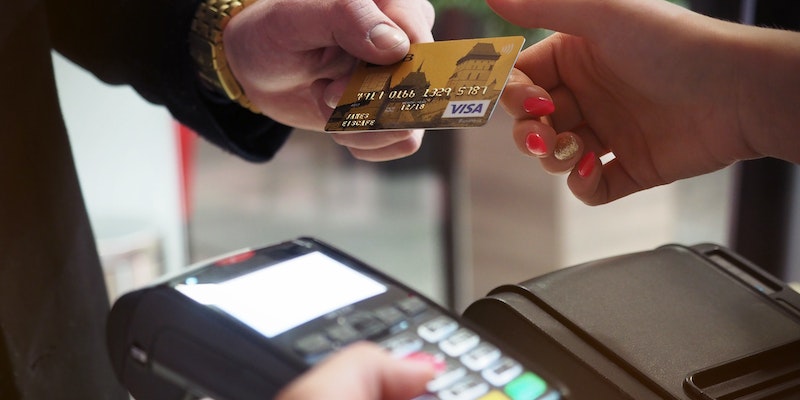Maximizing Your Finances with Online Banking: A Comprehensive Analysis
Susan Kelly
Dec 12, 2023
In the early 1990s, as the internet began to commercialize, established banks saw an opportunity to reach their customers digitally. They started by offering basic services online, such as account openings and loan applications. This initial foray into the digital realm showed promise, prompting these banks to enhance their online offerings.
This shift in the banking landscape paved the way for the emergence of internet-only banks. These digital-first institutions operated without physical branches, focusing entirely on online banking services. The pioneer in this space was the Security First Network Bank, which opened its virtual doors on October 18, 1995. Being an online-only entity, it could offer more attractive interest rates and lower service fees thanks to significantly reduced operational costs.
The growing variety of online banking options sparked considerable interest among customers. A report from the FDIC highlighted that over 60% of bank customers engaged in some form of online banking activities.
Online banking, also known as Internet or web banking, allows users to perform various financial transactions over the Internet. Today, nearly every banking institution provides online banking accessible through computers and mobile applications.
Advantages of Online Banking

Speed And Efficiency
Online banking revolutionizes financial management with speed and efficiency. Traditional banking is slow, while Internet banking is fast and easy. No more check-clearing or processing delays are game-changers. The rapid response allows customers to trade rapidly, improving financial management by enabling quick fund transfers. The speed of Internet banking improves economic efficiency. Online banking accommodates modern life's pace by providing a user-friendly platform that lets people manage their finances quickly.
Account Management
Opening and canceling accounts is easy with internet banking. Digital platforms make it easy to administer fixed deposits and higher-interest recurring deposit accounts. Managing several accounts from home is convenient. With a few clicks, you may make financial decisions, explore account alternatives, and enjoy online banking's flexibility. You can do everything online for a smoother banking experience.
Users can easily handle their daily business from the comfort of their homes with essential services like sending money to others and paying bills. But for many banks, online banking is more than just the basics. You can open new accounts and apply for credit cards through the web portal, among other advanced features.
Safety
Online banking has robust security features to protect your financial transactions. With 24/7 account access, you can quickly spot any suspicious behavior. This real-time monitoring protects against fraud and lets you quickly rectify unlawful transactions. Online banking platforms secure your sensitive data using encryption and multi-layered security. This proactive account monitoring and protection allows customers to respond rapidly to questionable activities, reducing financial risk.
Advanced security safeguards put you in charge of your finances, giving you peace of mind when banking online. When you bank online, security is the most essential thing to think about. Banks use robust security procedures and encryption to keep private information and transactions safe, among other things. Real-time tracking ensures that users can quickly spot and report any strange activity, adding another layer of protection against fraud.
Unique Features
Mobile and online banking have revolutionized the advantages of online banking in the digital era, making them more convenient and functional. Modern banking applications offer tailored financial advice, new savings programs, virtual assistants, and calculators for large expenditures. Reading statements, checking balances, transferring payments, and paying bills are essential, while mobile check deposits let consumers cash checks on their phones. Apps help find ATMs, make cardless withdrawals, and budget. Peer-to-peer payments make money transfers fast.
Banking apps now provide live chat help, bridging the gap between in-person and digital client service. This human involvement improves the banking experience by combining technology efficiency with a personal touch. Customers should pick organizations that smoothly integrate human and automated operations as digital banking evolves. Modern union bank online applications combine convenience, functionality, and tailored help in the palm of the user's hand to meet different financial demands.
Cost Savings
Online banking reduces paper and infrastructure costs, revolutionizing banking. Online banking removes paper checks, statements, and in-person transactions, saving production, handling, and shipping expenses. This paperless transformation reduces paper consumption and waste, improving financial organizations' cost efficiency and environmental sustainability. Cost-effectiveness produces a win-win situation, making banking more affordable and accessible.
Thanks to their minimal infrastructure and lower overhead costs, online banks often provide more attractive financial incentives than traditional banks. Greater interest rates, also known as annual percentage yields (APYs), on savings accounts are one of the most noticeable advantages. On occasion, interest rates offered by direct banks are 1% to 2% more than those traditional banks offer. Particularly for accounts with large balances, this disparity may greatly increase revenues.
Most direct banks have a variety of high-yield choices, while a small number focus only on savings accounts. Certificates of deposit (CDs) with high yields and special no-penalty CDs that permit early withdrawal fee-free are among these options. Customers banking with direct banks also enjoy fewer fees. Traditional issues like maintaining a low account balance, making direct deposits, or using checks and debit cards often come with additional costs at regular banks. In contrast, direct banks are more likely to offer accounts without these typical fees, including no requirements for maintaining a minimum balance or monthly service charges.
Important Considerations

Online banking has numerous benefits, but users must know several aspects. Internet banking newcomers may face a learning curve. The unfamiliarity might make things more challenging, so some prefer to do business with bankers in person. One issue with internet banking is that you can't access large quantities of cash. ATMs allow a specific amount of cash withdrawals, but you may need to shop if you need a lot. This is challenging for cash-heavy folks, so a combination of online and in-person banking is crucial.
Online banking users remain security-conscious. Even as security improves, hacking remains a possibility. Online banking consumers are advised to use their data plans instead of public Wi-Fi networks to reduce danger. This safeguards financial data from unauthorized access. Easy online banking requires reliable internet access. However, consumers may have problems connecting, making it hard to verify economic activities. These disruptions demonstrate the importance of a reliable Internet connection for online banking.







